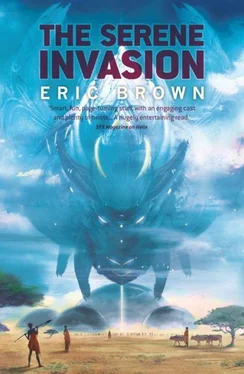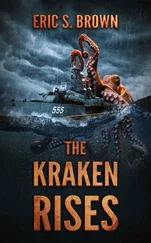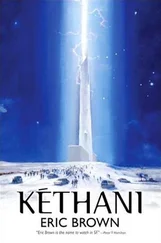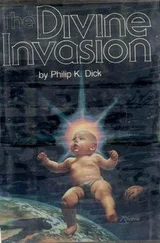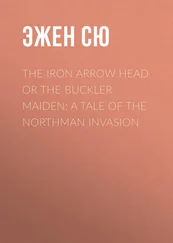She moved from the shadows, into the blistering heat of the sun, and walked along the jetty towards him. Further down the river a dozen young boys, as naked as monkeys, were hurling themselves from a pier and crashing into the water with delighted cries and shrieks.
She sat down, a metre away from her brother, and said, “Remember when we came here to jump in and swim? And sometimes we came to fish, though I can’t recall ever catching anything.”
“Back then the river was polluted, Ana. Nothing lived in it. Now, the river is full of life.”
She murmured, “The Ganges is like the world, come to life again.”
A companionable silence came between them, but there was so much that Ana wanted to say.
Bilal showed no inclination to say anything more, so she said, “I did not expect, when I went to New York in search of you, to find you in Kolkata, working in an orphanage.”
He hugged his right knee and stared into the river. His crew-cut hair was greying. Lines radiated from his eyes. She wondered where the slick businessman had fled to. He said, “Why did you come here, Ana? To accuse me again, to point the finger and blame me?”
“No, not this time, Bilal. I came… to see you. To talk about how it was when we were young. I just wanted to say that what happened ten years ago…”
“Stop, please. I don’t want to be reminded of…” His face was twisted bitterly at the recollection.
“Then let’s not talk of that, Bilal.” She paused, then went on, “The children back there were entranced by your story-telling.”
“They are young, and love stories. For many of them, it is the first time that anyone has read to them. Would you believe, Ana, that many of them had never even heard of Mahatma Gandhi?”
“Had we, at their age? I don’t know what is more surprising, Bilal; to find you here at the orphanage, or to hear you reading stories about Gandhi-ji. He was a man of peace, after all. The Serene would have loved him.”
For the first time her brother turned and looked at her.
“I am not the person I was, Ana. I have changed.”
“What happened?”
He gave a long sigh, staring out across the wide river to the far, crowded bank, and it was a while before he replied.
“I lied when I saw you ten years ago, Ana. I lied about the time I left you when you were six. I… never had any intention of coming back to find you. I was thinking only of myself, of my survival. I’ll be honest, though it pains me to say this… I thought then that you were a burden. I wanted nothing more than to get away, to better myself, but how could I do this when I had a sister hanging onto me, dragging me down?” He stared at her. “I’m sorry if these words hurt, but they are the truth.”
“I guessed as much, Bilal.” Though that did not make the truth any less painful.
“I wanted to get away from the poverty, the beatings. I was sick of being hungry, of being treated like a rat, of being a nobody. And then I had my chance, and no one and nothing was going to hold me back. Ana… I want you to understand this, to understand the boy I was then. I wasn’t a good person, but there were reasons why I wasn’t.”
She said, “I’m not blaming you.”
“Our uncle beat me daily, which is why we left his house and fled to the station. Not because he threw us out, but because he beat me for not bringing in enough rupees to pay our way.”
She shook her head. “I didn’t know. You never told me.”
He shrugged.
She said, “But you did come back to find me, like you said, five years after you left? You told me that you came back to the station, but I was not there. I knew you were telling the truth because then I was in Delhi… so I knew you had come back for me.”
She stopped as she saw him shaking his head. “I was lying, Ana. I never came back. That you were in Delhi then was just a coincidence.”
She nodded, taking this in, dismantling the memories that she had erected over the years of Bilal caring enough, once, to come in search of her.
She smiled to herself, and was not surprised that she felt no anger. His admission fitted with who he had been, back then, and who he might have become now.
“So the Bilal I met ten years ago, the champion of the Morwell Organisation, the hater of the Serene…”
“Was the person I had become because of the person I had been, the boy who had nothing one day, and then was suddenly offered the world. Please understand how that kind of promise can make a person… inhuman.”
“And now?”
“As I said, I am a different person now.”
“And I asked, ‘What happened?’”
He lodged his chin on his knees and regarded the water. He said at last, “Shortly after I… did what I did, tried to infect you with the Obterek implants… I expected retribution from the Serene. I expected some form of punishment. I don’t know what, but I lived in constant fear. James Morwell too, I know. But the strange thing was that nothing happened. We were not punished, or even admonished.”
“The Obterek never contacted Morwell again?”
“Not to my knowledge. Perhaps six months passed, and then I met a woman, an incredible woman who changed my life, little by little. I… until that point I had never been in love. I’d… I suppose, looking back, I’d used women for my own ends. But with her… things were different. She opened my eyes, made me confront my mistakes, look upon what I had done wrong, face my shortcomings and my humanity, or lack of…” He stopped, then said, “She also made me understand all that the Serene had done for us.”
“She sounds wonderful. Are you still…?”
He shook his head. “We were together for two years, and then…”
To her surprise, Ana saw that he was crying.
She reached out, found his hand and squeezed.
He said, “She died in a car crash back in ’38, a head-on collision with a tanker.”
She let the silence stretch, before saying, “So you left Morwell, started work at the orphanage?”
“Oh, I’d left Morwell long before that, perhaps a year earlier. How could I go on working for a man I knew to be insane, as well as immoral? I handed in my resignation to him personally, told him what I thought of him and his organisation. We parted, you might say, on bad terms. And I’ve worked here ever since, paying for my sins.”
She smiled. “Not sins,” she said. “You’ve become a good man, Bilal.”
He asked in almost a whisper, “Can you see your way to forgive me?”
“Who said that to understand is to forgive?”
He laughed. “It might have been Gandhi,” he said. Along the bank a small boy whooped, cartwheeled through the air and landed with a smack in the river.
“And you, Ana? What are you doing now?”
So she told him about her husband and son, and her life on Mars, and her work there and even her work as a representative of the Serene, and for a while as they sat on the banks of the river, with the cries of the children playing in their ears, it was as if she were five again, chatting to her brother about life and the strange world around them.
At one point she said, “You should come and live on Mars, Bilal. I would be able to find you work.”
“And leave the orphanage? I like to think I’m needed here. At least, I need the orphanage. But I will visit you one day, I promise.”
“I’ll look forward to that,” she said.
He rose to his feet, reached out and pulled her upright. “How long before you go back?”
“I’m here for a few days.”
“Then let’s meet again. Tonight? I know a wonderful restaurant by the park. If you drop by here at eight…”
“I’ll do that.” They came together in an embrace, and Ana thought that her heart was about to burst.
Читать дальше
